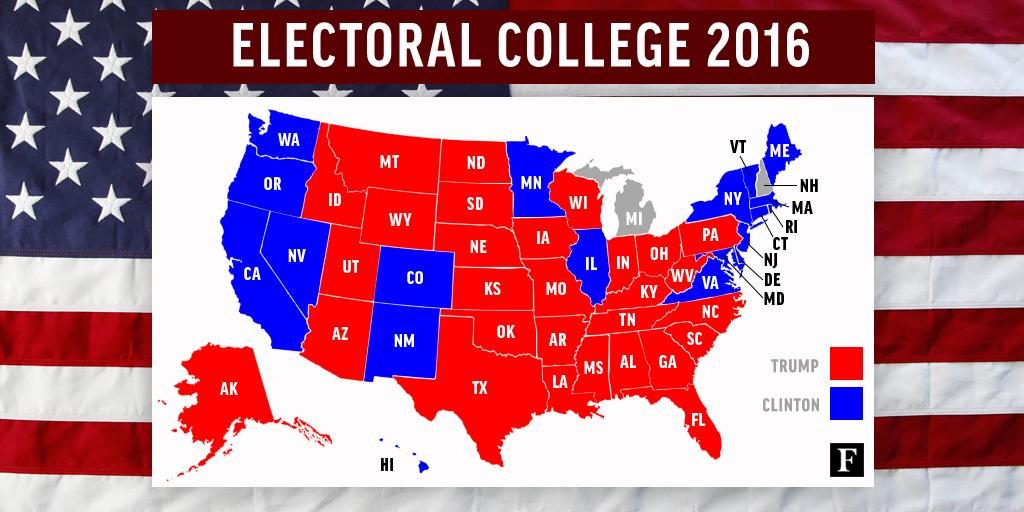The Founding Father’s Way of Ensuring that the Votes of Every State Count
by Kelly R. Smith

|
This article was updated on 01/06/21.
Ads we feature have been independently selected and reviewed. If you make a purchase using the links included, we may earn commission, which helps support the site.
With the 2020 presidential election all but over, whether you believe it was rigged by the Democrat Socialists or not, it’s a good idea to take a look at what the electoral college is and what it isn’t. Typically, following the election, the losers go on a frenzy crying, “It’s not fair! Abolish it!” Well, until the next time it helps them win. Then, it’s the best thing since sliced bread. This latest time, it is the liberal left that are gnashing teeth and rending garments.
A Brief History of the Electoral College
When the founding fathers were working out the details of national sovereignty and the Constitution in 1787, the question of how to conduct the presidential election was a contentious issue. In fact, it was one of the last issues to finalize.
Some of the suggestions seem downright bizarre today. The Virginia Plan opined that the National Executive should, “be chosen by the National Legislature.” James Wilson of Pennsylvania was more rational by favoring a popular election. Another suggestion put forth recommended that the election be determined by the Senate alone.
The next day Wilson suggested that districts be created where popular elections would be held to choose electors. These electors would then alone determine the next executive. Later, Elbridge from Massachusetts opined that only state governors have a vote. James Madison preferred a popular vote but was concerned that heavily-populated states would hold an unfair advantage. Therefore, he surmised that a committee with one representative from each of the eleven states should elect the President. That’s the electoral college as it went into the Constitution.
That is what many of the frenzy-criers and hobbledehoys today do not realize; we do not actually directly vote for the president directly, we vote for state electors to represent us. If we really had a popular vote, the voters in states like North Dakota would not have a say at all but California certainly would. In my humble opinion that would be a bad idea; most of the rest of the country isn’t as ready for Democratic Socialism as the west coast is.
Advantages of the Electoral College
The election is decentralized, that is, it takes place in individual states. The states have some say over how their voting process takes place. Some career politicians such as Elizabeth Warren oppose the college because she thinks the federal government should control the entire process and individual states should have no voice. So much for claiming to be for the common man and woman. That is the voice of incubating tyranny.
Why is this important? For one thing, if an individual state wants a recount, they can do it; that is their prerogative. If the Federal government had all the power, one state could trigger a national recount. What a mess that would be. Remember what a nightmare Florida was with the “hanging chads?” Imagine going through that with all the states. Why, it would be time for the next election before the current one was settled. It would in essence be a clever way of circumventing the presidential term limit.
The electoral college also helps presidential candidates by giving them a way to organize their campaigns. They know the sway that each state has so they can plan how much time to spend campaigning there and how to allocate funds. Many states would be cleanly ignored.
Disadvantages of the Electoral College
It can be a bit disheartening to think that individual votes don’t matter as much as we think they should, and indeed, that is a concept that was drilled into us in civics class. Back when we still had civics class rather than revisionist history. A faithless elector is one who has been chosen to represent their state in the electoral college but decides to cast a ballot against their state’s popular vote wishes. This has only happened a handful of times, but still.
It can actually depress voter turnout. For example, in the 2016 election, Hillary Clinton had a solid 15- to 20-point lead on Donald Trump in the polling several weeks prior to the election. The final outcome resulted in a difference of 16.2 points. For Republicans and Independents, casting a ballot could seem pointless because Clinton’s win seemed like a foregone conclusion. Perception is everything; and it can be manipulated.
It may not accurately reflect the national popular will. This is the main complaint made by Democrats today. Although Hillary won the popular vote, Trump won by virtue of the designated electoral vote. In my opinion that was a blessing. This way we got at least a portion of a border wall. If Hillary had of won it would be a free-for-all at the open borders. But having the system or not is really a trade-off; without the election system we currently have, small states would consistently be disenfranchised. Does anybody really want a country where your vote does not count unless you live in California, Florida, or New York? Of course not.
I hope this article on the history and rationale for the electoral college helps you as we will continue to roll into yet another presidential election cycle every four years. If it did, pass it onto your friends. In the long run, every vote really does count, just not in the way you might think it does. Please participate in the poll on the right-hand sidebar of this page.
Further Reading
- What is a Brokered Convention During a Presidential Primary?
- Democratic Socialism in America
- Columbus Day: History and Controversy
- The United States of Trump — How the President Really Sees America: A Book Review
Looking for more great content? Visit our main site I Can Fix Up My Home and partner sites:
I offer article and blog-writing services. Interested? Hire Me!
Did you find this article helpful? Millions of readers rely on information on this blog and our main site to stay informed and find meaningful solutions. Please chip in as little as $3 to keep this site free for all.
Visit Kelly’s profile on Pinterest.
About the author:
 Kelly R. Smith is an Air Force veteran and was a commercial carpenter for 20 years before returning to night school at the University of Houston where he earned a Bachelor’s Degree in Computer Science. After working at NASA for a few years, he went on to develop software for the transportation and financial and energy trading industries. He has been writing, in one capacity or another, since he could hold a pencil. As a freelance writer now, he specializes in producing articles and blog content for a variety of clients. His personal blog is at I Can Fix Up My Home Blog where he muses on many different topics.
Kelly R. Smith is an Air Force veteran and was a commercial carpenter for 20 years before returning to night school at the University of Houston where he earned a Bachelor’s Degree in Computer Science. After working at NASA for a few years, he went on to develop software for the transportation and financial and energy trading industries. He has been writing, in one capacity or another, since he could hold a pencil. As a freelance writer now, he specializes in producing articles and blog content for a variety of clients. His personal blog is at I Can Fix Up My Home Blog where he muses on many different topics.




